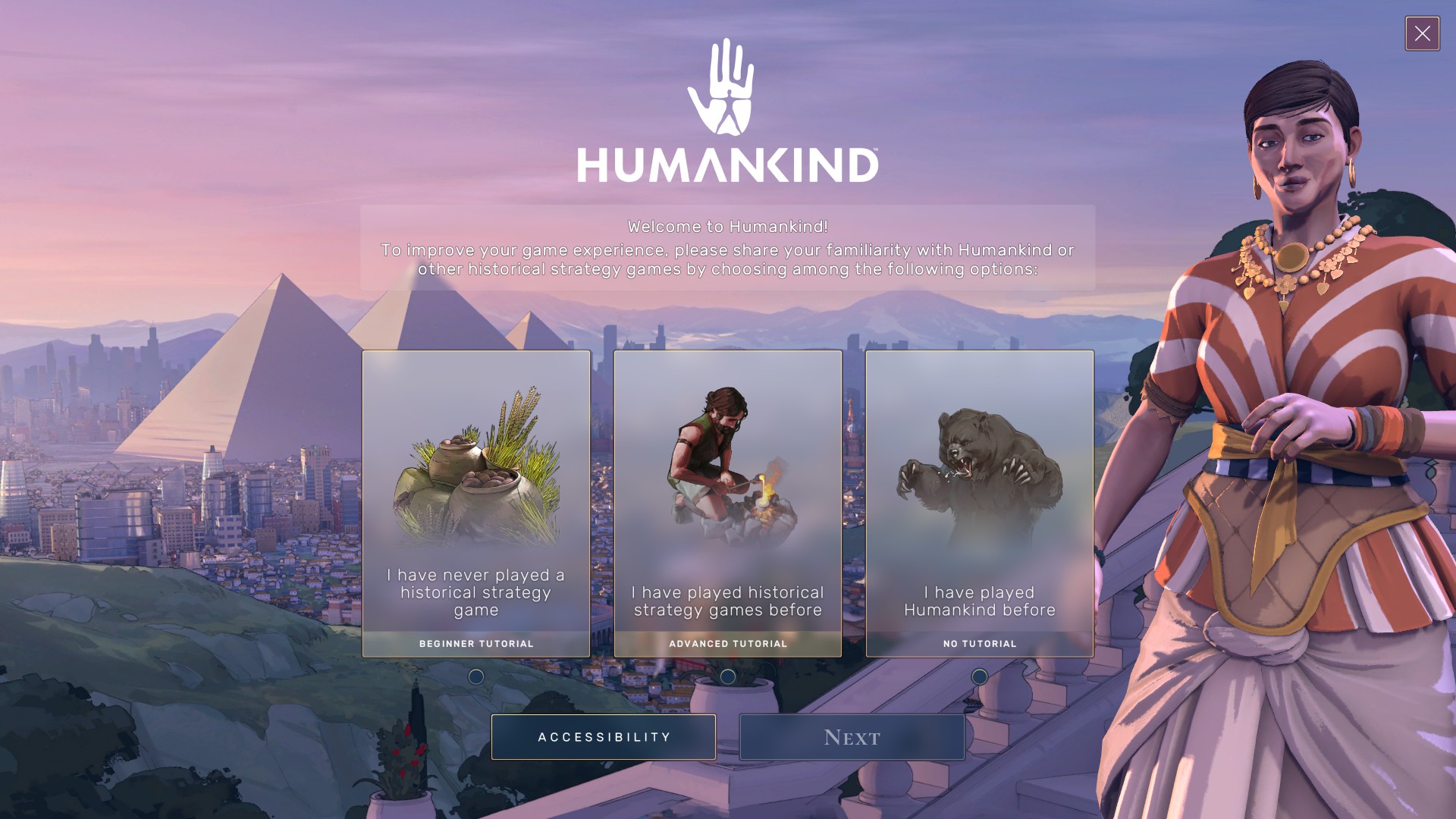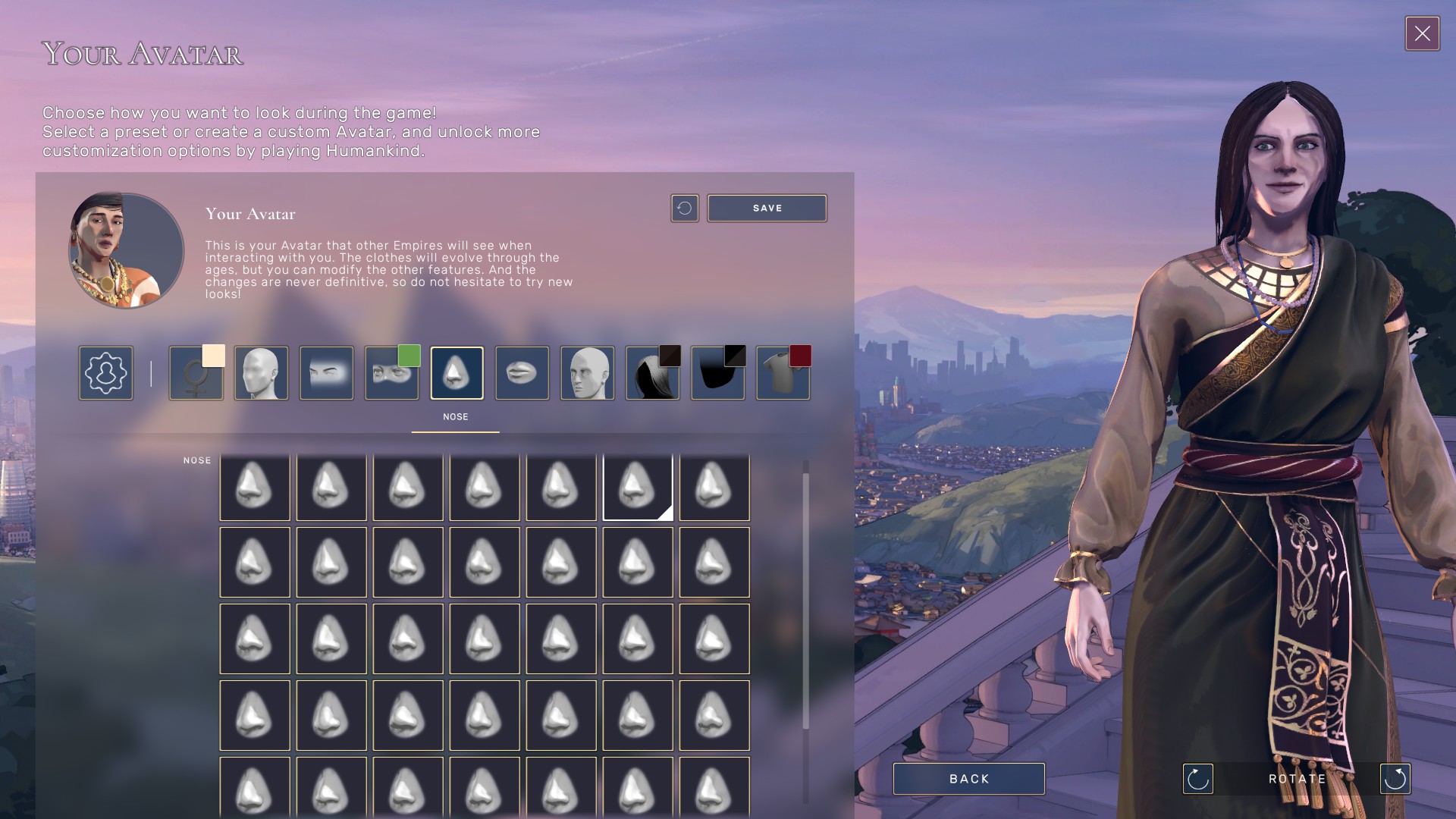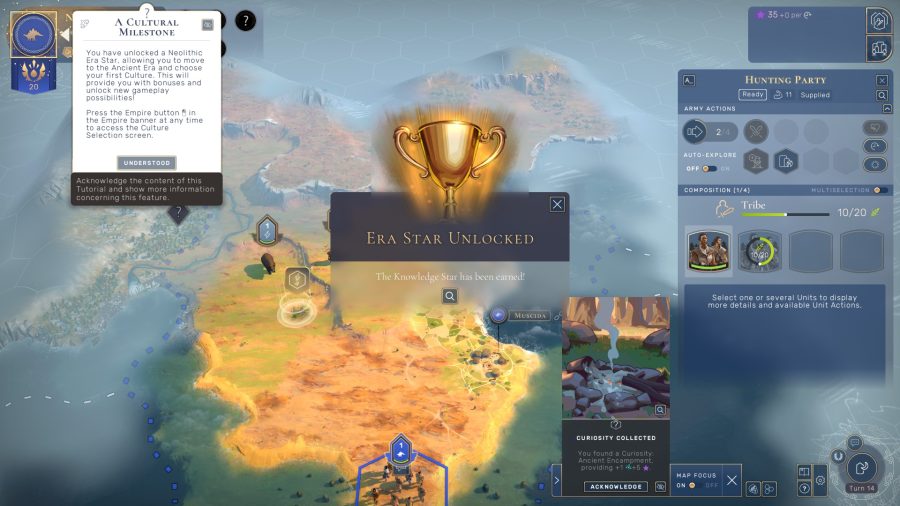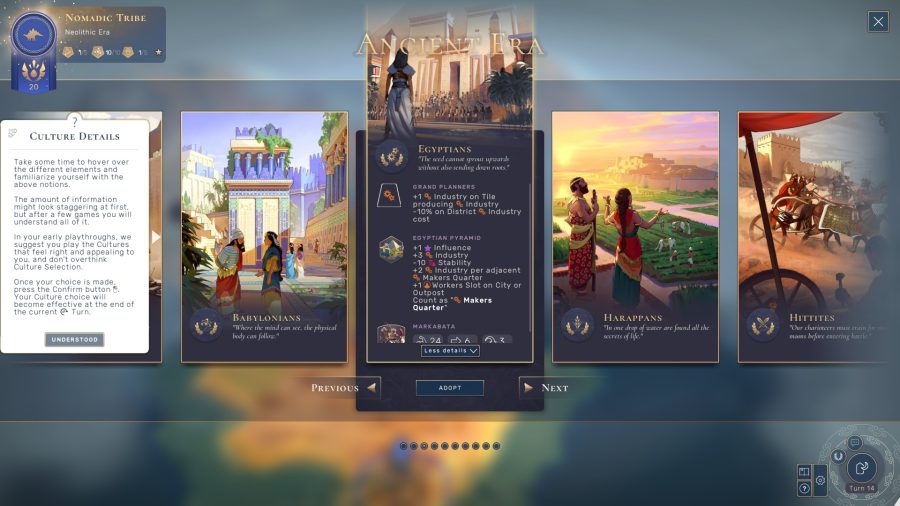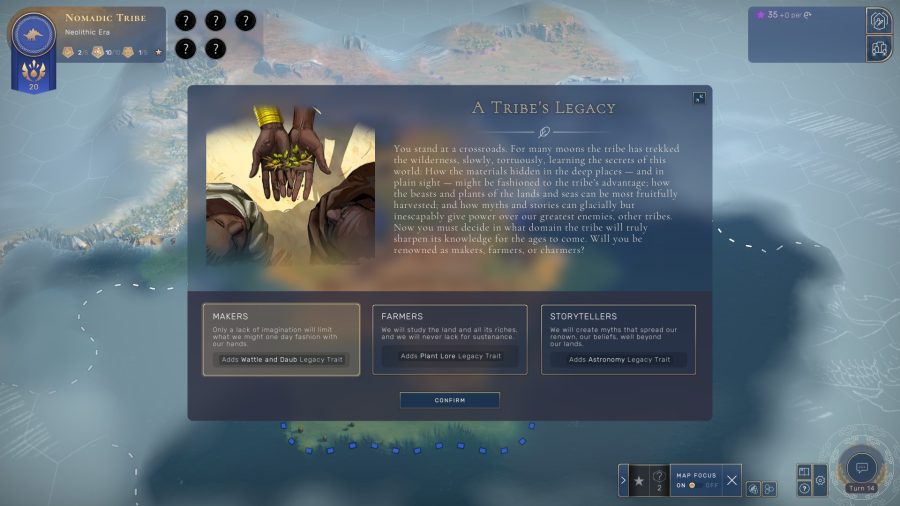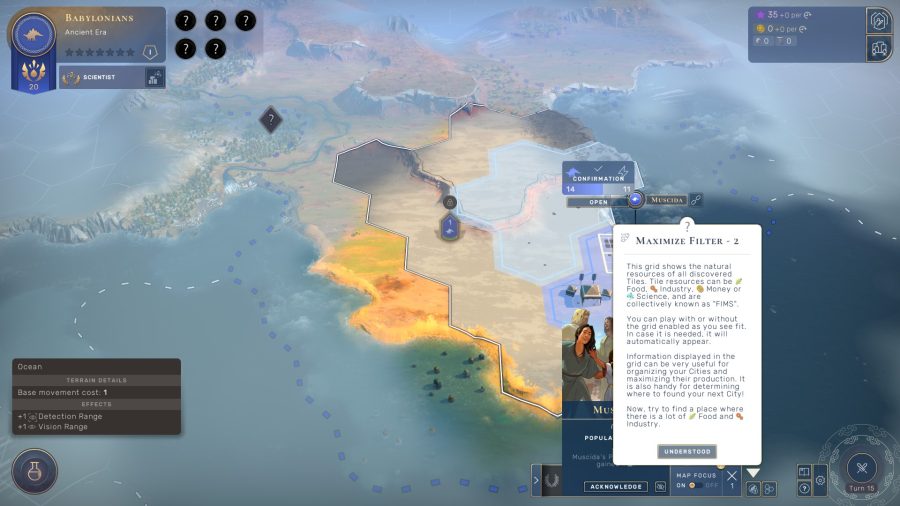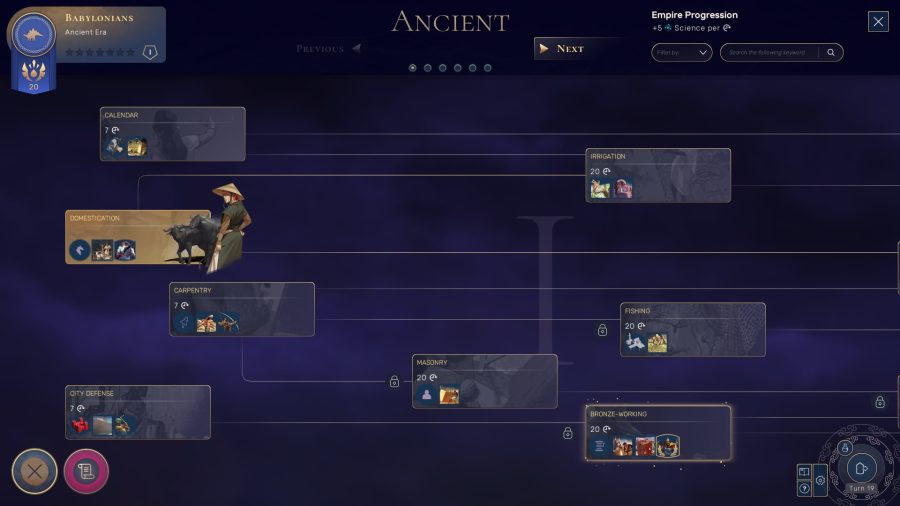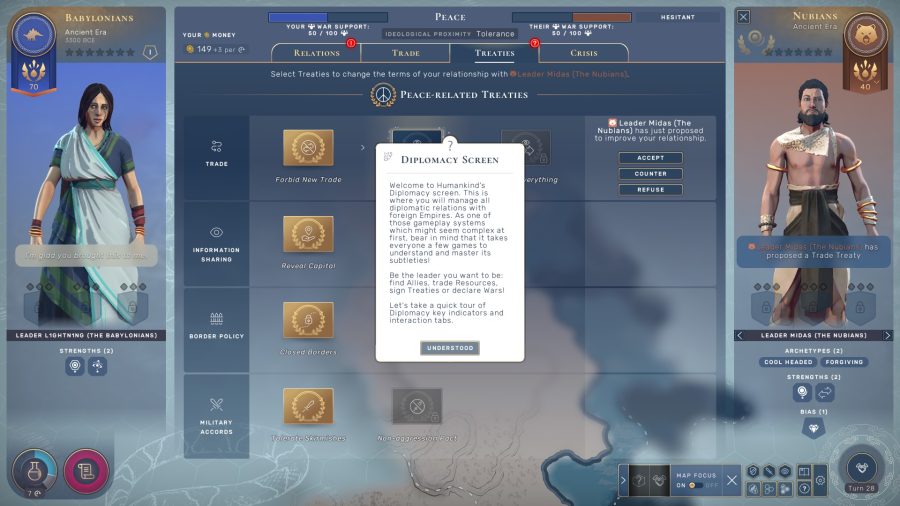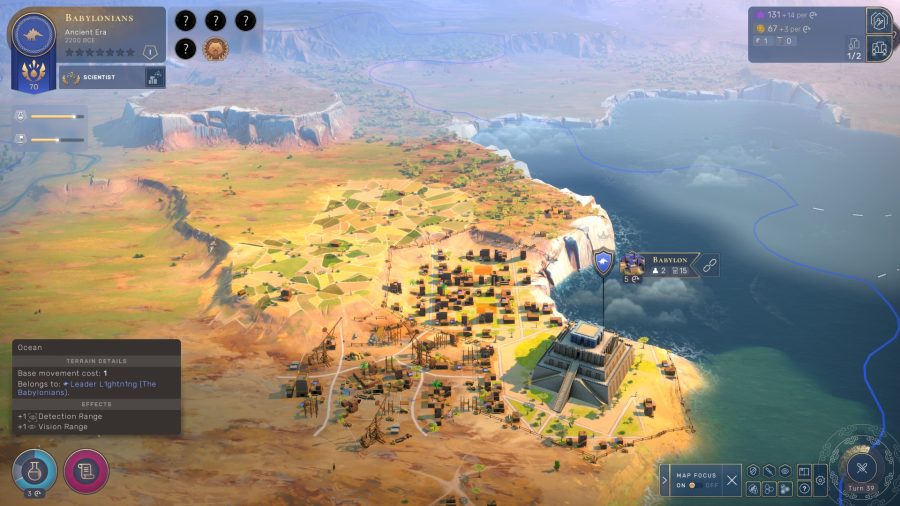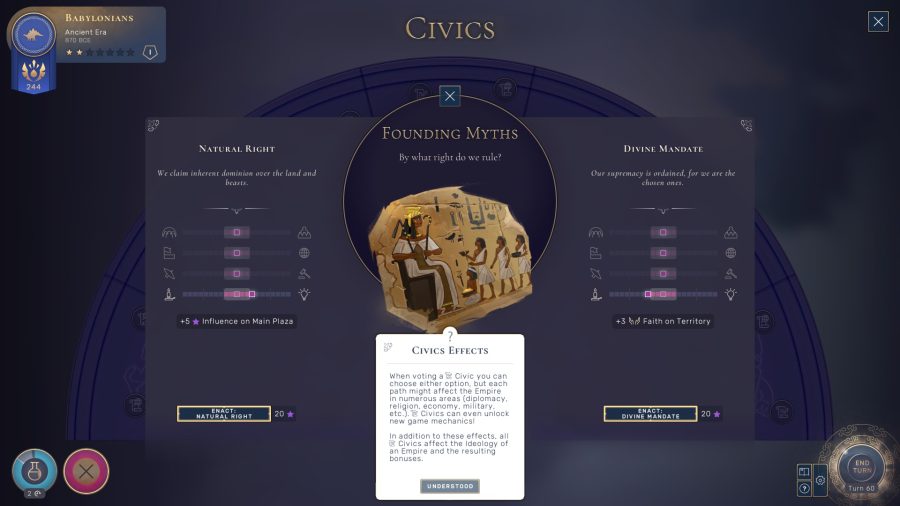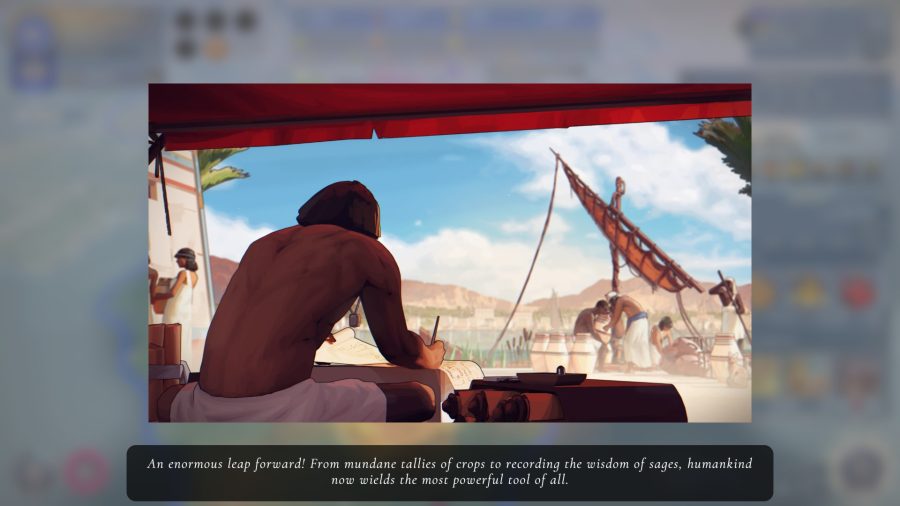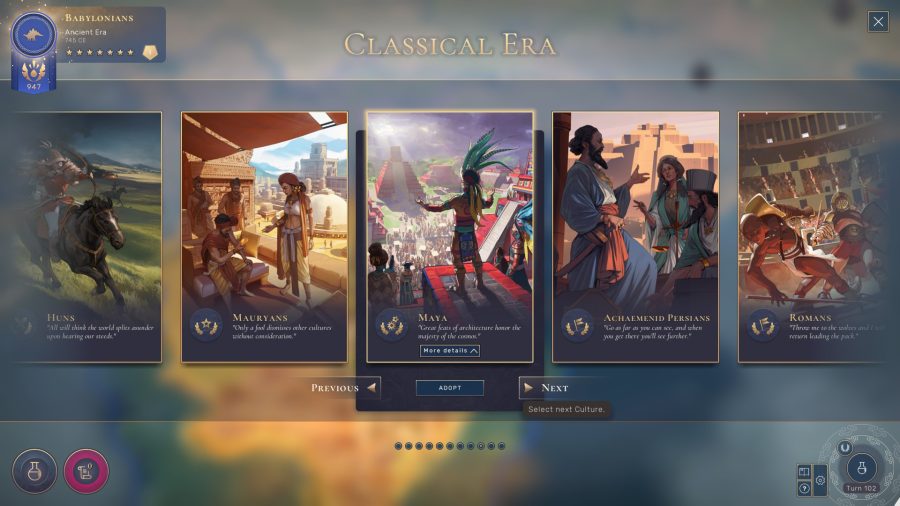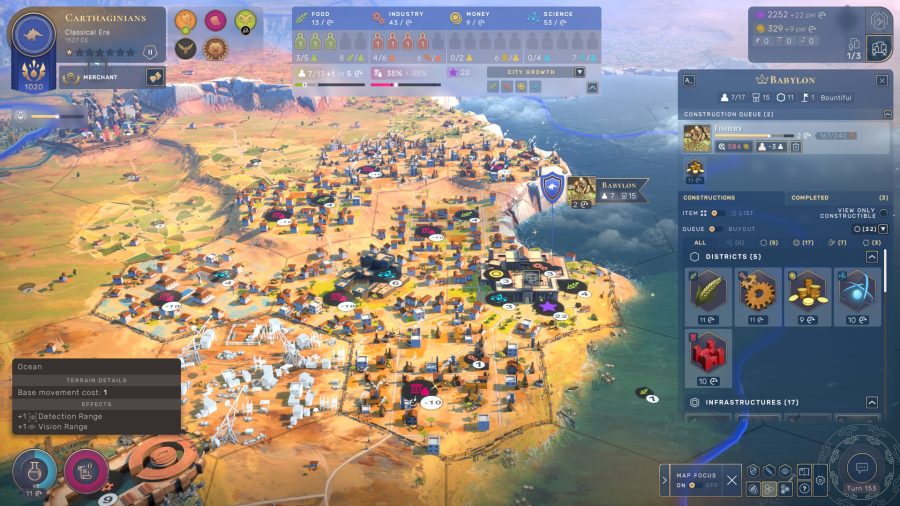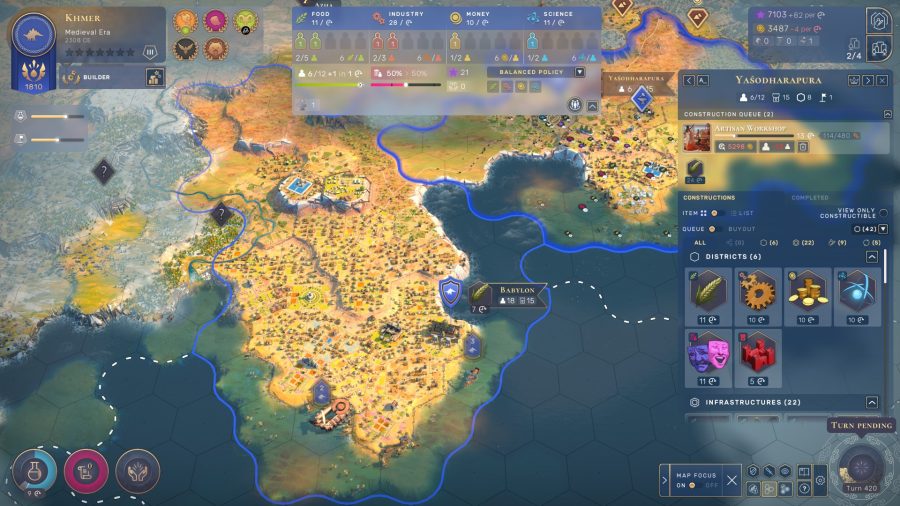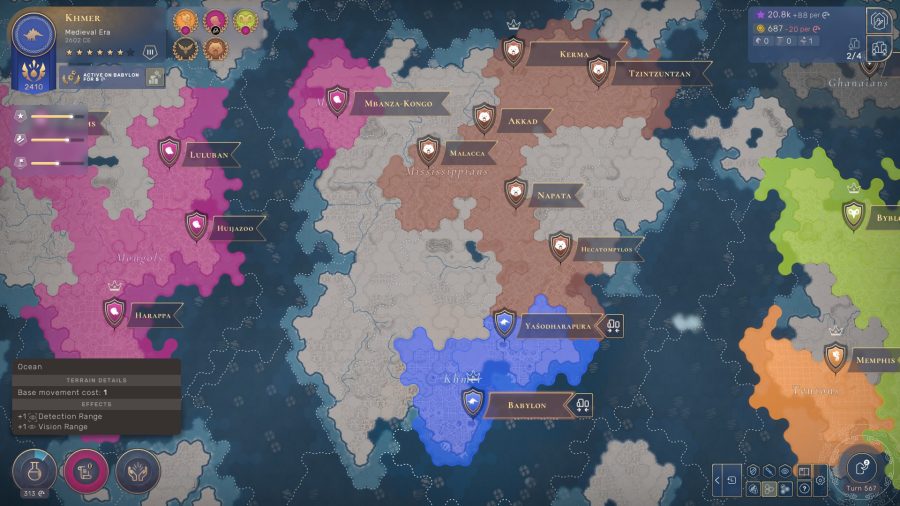Humankind from Amplitude Studios and Sega is a strategy game that acts as an alternative to Sid Meier’s Civilization.
As a 4X turn-based strategy game, Humankind does a lot right. It certainly hooked us for more than 80 hours over the span of a month but does the game actually deliver a solid experience compared to its competition?
Amplitude Studios have clearly looked at their competition and opted to make a game that’s very similar while trying to differentiate themselves from it. Sid Meier’s Civilization is beyond any doubt, a source of inspiration for Humankind and both games are incredibly similar to each other.
Having spent dozens upon dozens of hours playing both Sid Meier’s Civilization V and Civilization VI, Humankind spins its own tale which incorporates gameplay elements from both titles. A tale that focuses less on actual real life human historic figures and attempts to put you into a general leadership role that’s more flexible compared to its direct competitors.
Humankind launched a year ago and back then, the game was in a bit of a rough state if early reviews were to be considered. Now, a year on, the game has been heavily updated and features a heck of a lot more balanced gameplay mechanics as well as additional content.
Cultures of Latin America and Africa have been added to the game and these provide additional content, at a price of course, which some gamers may want to invest in. Both packs included 6 new cultures each as well as a bunch of brand new narrative events and music.
So “What are “narrative events”?” you might be asking? To answer that, Humankind does things slightly differently from Civilization. In this game, players will build up their empire slowly but surely, however they progress through the ages, certain things will happen.
These things are occurrences that will shape your progress and your empire in a multitude of ways. For example, in the early Ancient Era, a narrative event involving rats decimating your stored food supplies offers you up the chance to domesticate cats to deal with the issue at hand.
Another narrative event that involves domesticating wolves for hunting can also occur. Players will be able to select from a range of options when a narrative event occurs and these options have consequences down the line for your settlements. Either to your resources or production output or more.
Humankind therefore follows the traditional 4X gameplay formula of explore, expand, exploit and exterminate but blends in narrative events which can trigger at any moment to effectively spice things up.
Players are also not completely locked to one type of culture or people and can choose to change this whenever they enter a new era. This means that you can build up a nation which can swap over from Ancient Egypt to let’s say, the Maya, when you’ve accumulated enough Era points and move on to the next era.
On paper, this might sound great but in action, a game of Humankind becomes a mad rush to accumulate as many era points as possible by completing the tasks assigned to rewarding you points. You’ll have to do this so that you can pick the culture you want for the next era before another player or PC controlled opponent does so. Some cultures also definitely have advantages over others because of their perks, layout of the maps and access to the scattered resources.
This is unfortunately something that cannot be avoided and even in Sid Meier’s Civilization, this happens too. It’s all about racing as fast as you can to explore the map, identify resources, expand your empire and exploit those resources and then eliminate your opponents. All while racking up era points, continuously researching new technologies, implementing governing policies and avoiding or taking part in combat. Easy enough huh?
Speaking of which, the combat in Humankind involves a bit more difficulty and interactivity. Players will be able to position their units more flexibly in order to gain a high ground advantage in battles. Battles can be auto-resolved or you can sit and watch the animations play out.
Opting for auto-resolving does put you at risk though if you haven’t positioned your military units properly. Retreating, reinforcing and flanking also play a role here and the combat in Humankind feels a lot more satisfying to partake in because of the more tactical aspects.
The game does a good job of explaining this to you but combat can be quite challenging when your opponents are technologically superior to you or vastly outnumber you.
With all of the above said, the sheer amount of in-game learning that needs to occur in Humankind is a tad daunting for newcomer players. If you’ve played Civilization V or Civilization VI in the past, much of what goes on in Humankind will feel very familiar to you.
If not, however, and you’re brand new to the game and genre, be prepared to sit through a range of tutorial videos which explains the gameplay mechanics in detail. The game does ask you upon starting a campaign if you have experience with historical strategy games and it’s recommended to select the option that most applies to you since it will affect how much help or assistance you get given by the tutorial.
If you rush into Humankind blindly without learning the more nuanced aspects of the game, chances are you will be brutally eliminated in the early eras either by wild animals, lack of resources or enemy forces attacking you. Taking things slow and steady is a key aspect of Humankind at first and only once you’re up to speed with the gameplay mechanics, will you be able to really start enjoying yourself.
Unfortunately, gamers who lack patience will find themselves getting annoyed or bored with Humankind even with the sudden narrative events popping up every now and then.
There are plenty of moments in the game’s mid to late game stages where, much like with Civilization, you will end up clicking “end turn” for 20 turns straight just waiting for things to build, or research into a particular technology to complete.
Humankind’s take on religion and religious influence is slightly different to Civilization and so too are the exploration and random discoveries that go during gameplay. Diplomacy is also handled differently, but the mixture of cultures and the swapping over that happens often means that no opponent in the game feels clearly defined throughout the eras. Some gamers might dislike this while others will love this aspect of the game.
Humankind compares rather well to Civilization VI in all aspects including graphics. Graphically, the game’s artstyle is certainly gorgeous. It also runs rather flawlessly on ultra settings and not once was there any slowdown or crashing during the late game phases.
The soundtrack on offer in Humankind is also filled with orchestral music that is not only catchy but also varied enough for each culture. There are plenty of background music tracks here that you’ll be humming to yourself while you sink dozens of hours into the game..
Overall, Humankind is an alternative to Civilization VI that packs a tonne of content into one package. Amplitude Studios have created a 4X strategy game that while lacking in some aspects, delivers above and beyond in others.
The narrative events are some of the best moments in the game and the choices you make really do have a profound effect on your empire and how the game plays.
This feels satisfying in action and despite the slow pace of the mid to late game, Humankind still gets a recommendation from us if you’re a fan of strategy games. Just don’t expect this to be a “Civilization VI killer” and you’ll still have fun.

